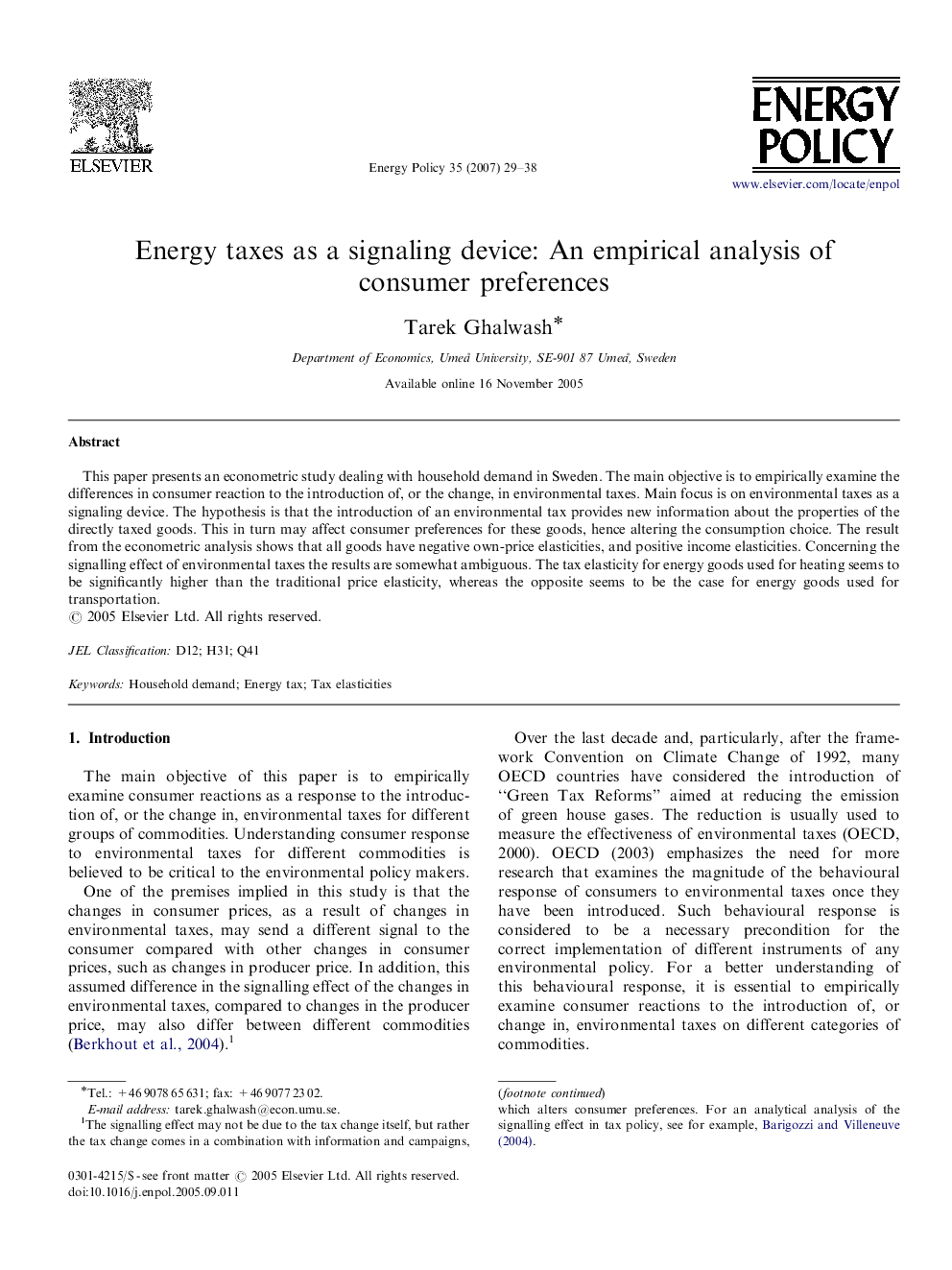| Article ID | Journal | Published Year | Pages | File Type |
|---|---|---|---|---|
| 994557 | Energy Policy | 2007 | 10 Pages |
This paper presents an econometric study dealing with household demand in Sweden. The main objective is to empirically examine the differences in consumer reaction to the introduction of, or the change, in environmental taxes. Main focus is on environmental taxes as a signaling device. The hypothesis is that the introduction of an environmental tax provides new information about the properties of the directly taxed goods. This in turn may affect consumer preferences for these goods, hence altering the consumption choice. The result from the econometric analysis shows that all goods have negative own-price elasticities, and positive income elasticities. Concerning the signalling effect of environmental taxes the results are somewhat ambiguous. The tax elasticity for energy goods used for heating seems to be significantly higher than the traditional price elasticity, whereas the opposite seems to be the case for energy goods used for transportation.
